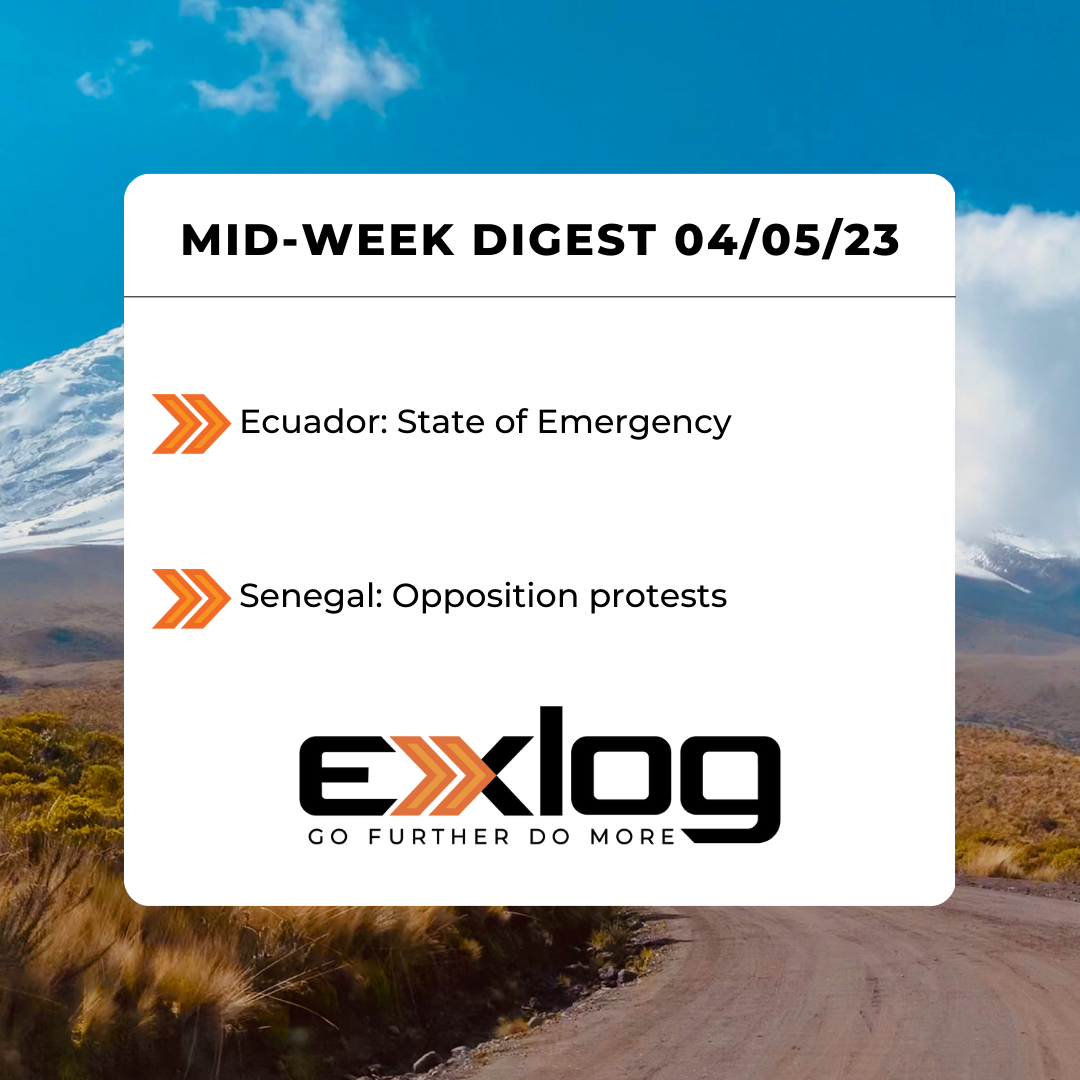State of Emergency in Western Ecuador and opposition protests in Senegal
Ecuador: Lasso declares State of Emergency over rising insecurity
Ecuadorian President Guillermo Lasso declared a 60-day State of Emergency (SoE) in Zone 8 – which includes the cantons of Guayaquil, Durán, and Samborondón – and the nearby provinces of Santa Elena and Los Ríos on April 1 due to escalating organized crime activity. In addition to implementing a 0100 to 0500 nightly curfew and restricting public assembly, Lasso has authorized the use of firearms and pepper spray by civilians. The government also announced that private security guards will support the Ecuadorian police in the affected areas, though the president has not released specific details regarding deployments. The following groups are exempt from the ban on road travel during curfew hours: health workers and civil servants, emergency services, government employees and contractors, logistics workers, civilians traveling to and from airports, lawyers, and media personnel. The decision to introduce the SoE follows a significant increase in violent crime in the areas included in the decree; Zone 8 recorded a 69% increase in homicides between Jan. 1-March 29, compared to the previous quarter, while the province of Los Ríos registered a 133% increase in homicides in Q1 2023 compared to the same period in 2022. Santa Elena Province recorded an increase in both violent and non-violent property crimes perpetrated by organized crime groups, with vehicle robbery recording an approximately 9% increase in Q1 2023, compared to the previous year. Ecuadorian authorities attribute the increase in violence to territorial disputes among local gangs, some of which are affiliated with Colombian and Mexican drug trafficking organizations. Since President Lasso took office in May 2021, he has enacted ten SoEs focusing on coastal provinces – key regions for transnational drug trafficking – although none of the past measures have led to a substantial, long-term decrease in violent crime. As a major transit and distribution center for illegal narcotics, Ecuador is unlikely to experience an improvement in the overall security environment in the medium-to-long term as rival criminal organizations continue to vie for lucrative smuggling routes along the country’s Pacific coastline.
Senegal: Violent protests in support of opposition politician subside
Recent violent protests in support of opposition politician and presidential aspirant Ousmane Sonko have subsided following a trial sentencing on March 30 that has appeased his supporters. Demonstrations on March 29 and 30 in central Dakar turned violent as protesters created roadblocks with burning tires and threw rocks at security forces. Enforcing a ban on demonstrations within the capital city, the police responded by dispersing the crowds of mostly students with tear gas and stun grenades and taking dozens of protesters into custody. This latest round of protests was a continuation of demonstrations from two weeks earlier when more than 10,000 Sonko supporters rallied in the northern Dakar neighborhood of Yoff March 14-16. These initial protests turned violent on March 16, ending with hundreds arrested and three killed. While the majority of the recent rallies were concentrated in the capital, demonstrations have also materialized in the cities of Mbake Diourbel and St. Louis, as well as the towns of Ndame and Rao. Following two years of sporadic and sometimes violent demonstrations in support of Sonko, this most recent series of protests was spurred by his trial on charges of libel. Sonko was found guilty on March 30 but received a suspended two-month prison sentence that will not prevent him from running in Senegal’s February 2024 presidential elections. Sonko supporters have alleged that the libel trial and a 2021 arrest on charges of sexual assault constituted attempts by the government of President Macky Sall to prevent Sonko from running against him in next year’s elections. Despite Senegal’s reputation as a stable democracy and its constitution limiting presidents to two terms in office, Sall’s statements have indicated that he is considering running for a controversial third term. Although tensions have abated following the March 30 ruling and are likely to remain low in the near term, further and greater unrest is possible within the next ten months leading up to the vote, given Sonko’s pending sexual assault case and Sall’s failure to rule out running for a third term.


